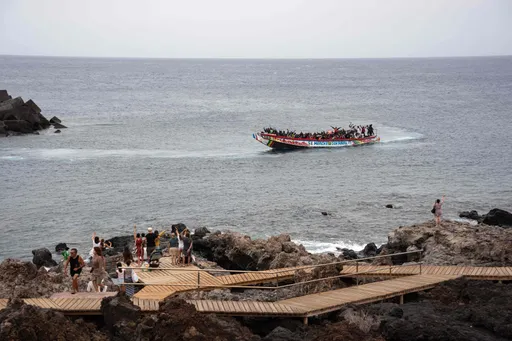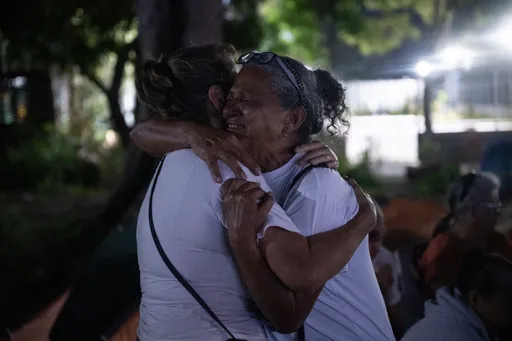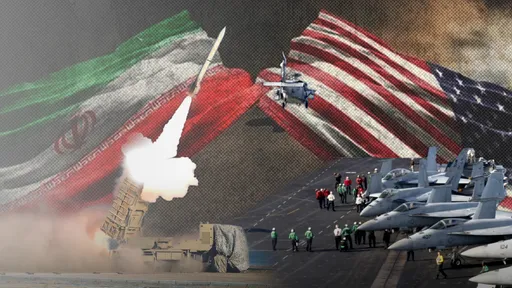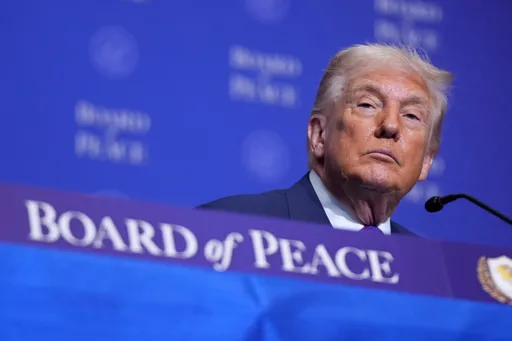The scion of India's Congress party Rahul Gandhi has entered India-administered Kashmir, the last stop of his pan-India march aimed at uniting the people his party believes are being divided along religious lines by the Hindu nationalist government led by PM Narendra Modi.
Tens of hundreds of Kashmiris welcomed Gandhi on Friday as he entered Qazigund, the gateway town to the disputed region which is held by India and Pakistan in parts but claimed by both in full.
The scene of a gathering was a rare sight as large political gatherings have become virtually non-existent since 2019 when New Delhi annexed the region, ended its limited autonomy and took it under direct control.
Gandhi was joined by Omar Abdullah, former chief minister of the region.
Abdullah is the third-generation leader of the National Conference, which has made the restoration of complete autonomy to the region its party's main demand but has done little to achieve it.
Pro-independence groups accuse it of collaborating with the Indian state.
Senior Congress leader and Gandhi's fellow marcher Jairam Ramesh told reporters that the government had not made proper security arrangements, which forced Gandhi to cut short his walk in the town.
At least six people were injured in two blasts in southern Jammu region ahead of the arrival of Gandhi.
India-administered Kashmir is the final but the most important destination of the march named Bharat Jodo Yatra [or Unite India Rally], ostensibly termed against the alleged divisive policies of the Modi-led government, especially in the backdrop of the revocation of the autonomous status of the disputed region.
Ramesh told reporters that they will continue in Kashmir with the message of the march, which he said was to "inform the countrymen about the negatives of Modi government’s policies."
READ MORE:India's Congress begins 3,500-km march against 'hate'
Gandhi says will restore Kashmir's statehood
After the change in status, Modi's popularity has risen among the Hindu nationalists, his core support base and who have been clamoring for withdrawing the autonomy of Kashmir since India's independence in 1947.
The Congress and several opposition parties have opposed the "undemocratic manner" in which the Modi-led government withdrew the autonomy in parliament.
But the party has not promised to restore the special status.
Before entering Kashmir, while addressing reporters in the southern Jammu region, Gandhi said his party will "put all might and resources behind" to restore the statehood of region, which was divided and downgraded into two federally-ruled territories in 2019.
His party colleague Ramesh even talked of constitutional safeguards under Article 371 of the Indian Constitution, which provides land, job and other safeguards to some states in the northeast region of India.
Gandhi set off for the long march in Kanyakumari, a coastal town that is the southernmost tip of India, on September 7.
The march, which is broadcast live on a website, has traversed 3,500 kilometres and crossed 12 states before finishing in India-administered Kashmir on January 30 at the party's Kashmir headquarters in main Srinagar city.
READ MORE:India's opposition Congress gathers tens of thousands in Karnataka rally
Close to nuclear war in 2019
Kashmir has been the spark for two major wars and countless clashes between India and Pakistan, the two nuclear-armed arch-rivals.
India calls the Himalayan region an "integral part" of its nation and is against holding an UN-backed plebiscite there. Pakistan sees Kashmir as an unfinished business of partition and its "jugular vein."
Many rebel groups have waged an armed revolt against Indian rule since 1989.
Anti-India sentiment runs deep in Kashmir's mostly Muslim population and most people support the rebels' cause.
Tens of thousands of people have been killed in the uprising and the ensuing Indian military crackdown.
Earlierthis week, former US secretary of state Mike Pompeo said that India and Pakistan came close to nuclear war in 2019 and that US intervention prevented escalation. "I do not think the world properly knows just how close the India-Pakistan rivalry came to spilling over into a nuclear conflagration in February 2019," the likely future presidential contender wrote in "Never Give an Inch," his memoir, published on Tuesday, of his time as Donald Trump's top diplomat and earlier CIA chief.
India, in February 2019, broke precedent by launching air strikes inside Pakistani territory after blaming a militant group there for a suicide bombing that killed 41 Indian paramilitary soldiers in the flashpoint Kashmir region.
Pakistan shot down an Indian warplane, capturing its pilot Abhinandan Varthaman, who was later released in a "goodwill gesture" by Islamabad.
Pompeo wrote in the book that he was woken up with an urgent call from a senior Indian official.
"He believed the Pakistanis had begun to prepare their nuclear weapons for a strike. India, he informed me, was contemplating its own escalation," Pompeo wrote.
READ MORE: India woke me up to brief about Pakistan nuclear strike preparation: Pompeo























